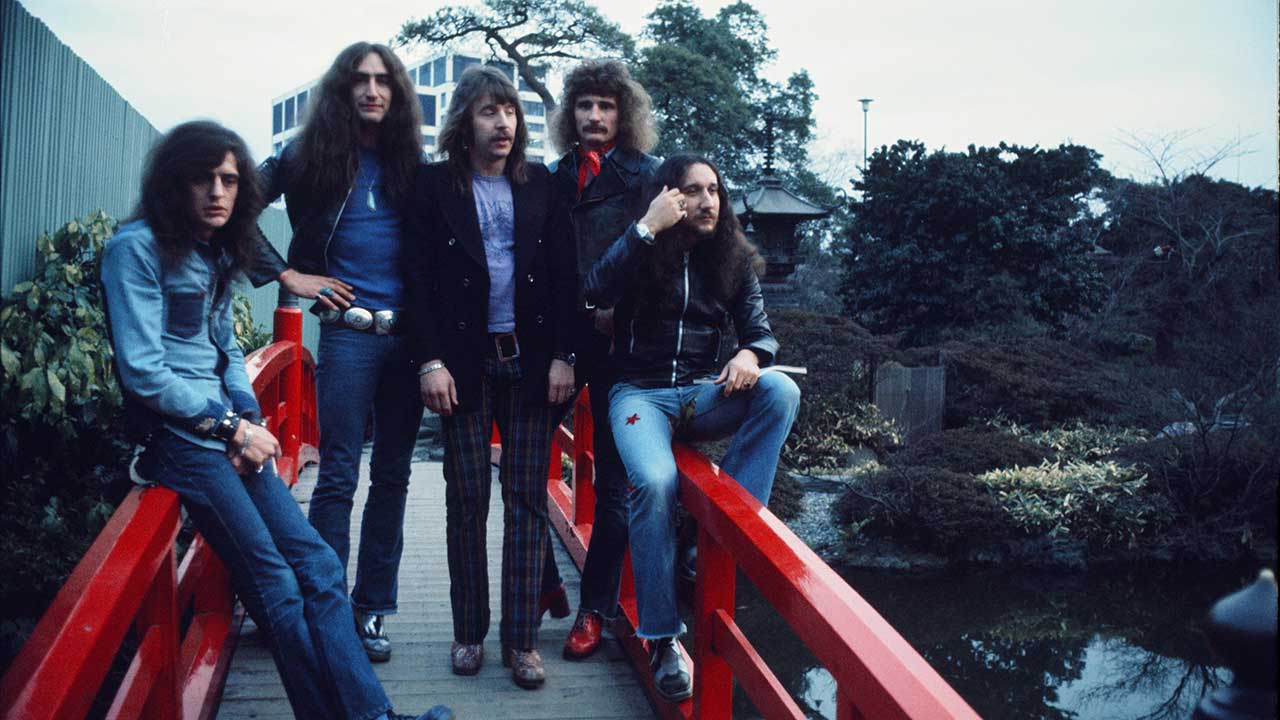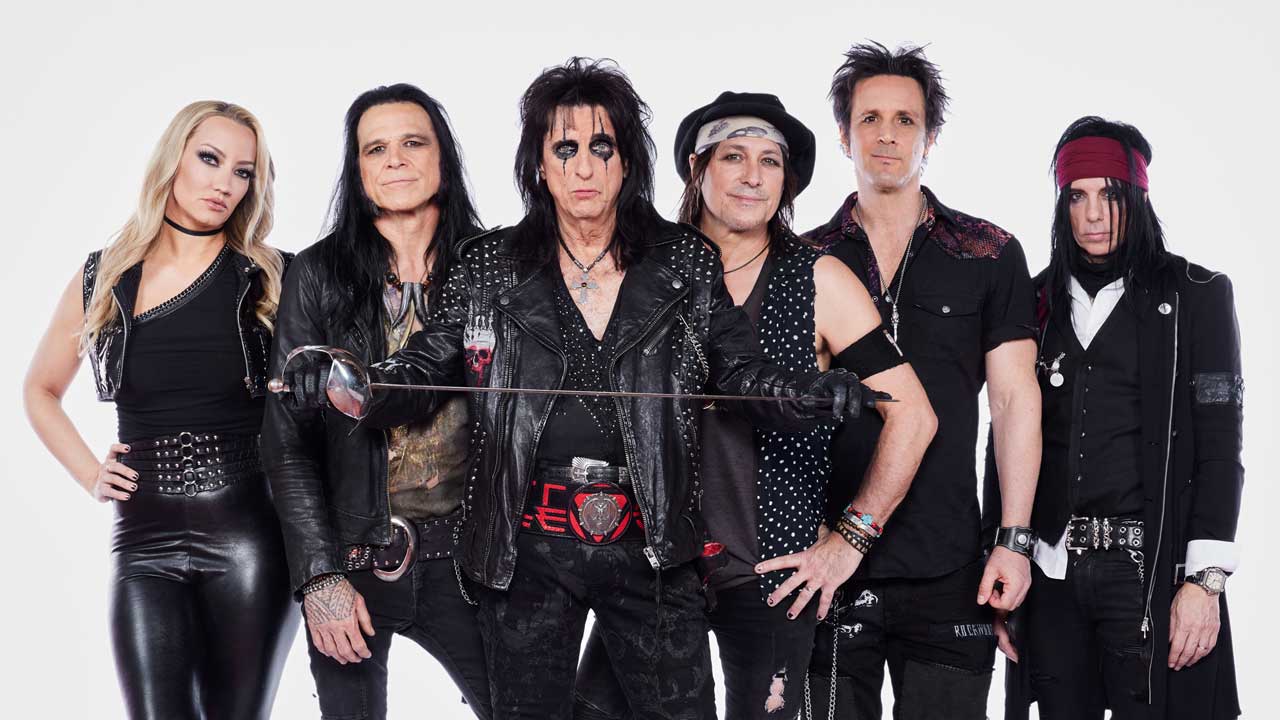Uriah Heep and the slow road to ruin
For a while in the 1970s Uriah Heep reigned supreme, but then it gradually began to fall apart

Despite a variety of undermining forces, Uriah Heep succeeded in establishing themselves among the elite hard rock bands of the 1970s. All these years later, it’s hard to appreciate that they were a vital part of a British invasion that had been spearheaded by Led Zeppelin and Deep Purple.
Open hostility from the press was no problem, and tens of thousands of fans regularly flocked to see them wherever and whenever they played. Nevertheless, a number of internal complications were exerting themselves upon the band by 1974.
Among these were friction with Gerry Bron, the founder of Bronze Records and the band’s producer, plus a growing rivalry between vocalist David Byron and keyboard player/guitarist Ken Hensley.
“David was difficult at the best of times,” said Bron. “He was always creating these impossible situations, but Ken was no angel either. Those facts were more apparent than ever on the Wonderworld album.”
To make matters worse, Ken was still the group’s principal songwriter and, as always, Heep were relying on him to deliver another killer album. The strain of the troublesome Wonderworld sessions was to prove almost too much for David, Ken and even for the eternal trooper, guitarist Mick Box.
“It was a bloody nightmare,” recalled Mick with a wistful shake of the head. “Ken spent most of the time in his room crying and David was just on this unbelievable bender. Trying to hold it all together was almost impossible."
“Our strength at the time was that we could make anything sound great,” stressed the guitarist. “Ken could bring in a bareboned idea on acoustic guitar, we’d give it the Heep treatment and it’d take on a life of its own. We felt indestructible. We still say it: give us a stage to perform on and nobody can beat us.”
Sign up below to get the latest from Classic Rock, plus exclusive special offers, direct to your inbox!
But Box had also noticed that Byron’s ego was becoming out of control. He says: “While the rest of us were in it for the ride, [the fame] started getting to David a bit. And the cracks began to show. Management only listened to one person, which was Ken Hensley, and David felt upset by that.” Considering, Wonderworld emerged as a reasonable effort. It may have lacked the strength of its predecessor Sweet Freedom, but it certainly remained very much in the Heep mould.
However, in retrospect, many of the participants are less than thrilled with Wonderworld. “The great songs were becoming fewer and farther between,” said Hensley. “The fame seemed to become more important than the music. We suffered from burnout, perhaps without realising it.”
Sadly, bass Gary Thain, his body already weakened by heroin, was becoming less and less reliable and the group were eventually left with little choice – he would have to be replaced. Just three months later, Thain’s girlfriend found him dead in the bath at his London home. He’d taken a heroin overdose.
“Personally, I didn’t cope with it very well at all,” Ken admitted. “I had become so involved in drugs that I really wasn’t in the best of shapes. We were all so busy dealing with our own problems that we couldn’t pay enough attention to helping Gary deal with his.”
Thain’s successor was former Roxy Music bassist John Wetton – a skilled writer and instrumentalist. For Hensley, however, there could never be a real replacement.
“We weren’t replacing the bassist, we were replacing a very significant part of the band’s chemistry,” he said. “That was the beginning of the end of the whole thing, really.”
The first public offering from the Wetton line-up was 1975’s Return To Fantasy. The title track was an instant hit with Heep fans. The rest of the songs, however, were distinctly below par. Nevertheless, Bronze did a good job with the promoting and marketing (in Britain, some £10,000 was spent on TV advertising and £3,000 on radio).
Consequently, it charted well. “It’s true that Return To Fantasy was Heep’s best-selling album in the UK,” said Wetton, “but you cannot merely promote something in order to make it successful – it has to be there in the grooves.”
The following tour took Heep to Scandinavia and the rest of Europe, Britain, the USA and Canada. Bron predicted that the yearlong trek would see the group playing to a million punters and travelling 30,000 air miles.
“They [the promoters] give you anything you ask for,” said Ken. “They’ll give you ten limousines if you ask for them. They’ll give you 50 bottles of champagne.”
But it was not all plain sailing, and on the fourth date of Heep’s 42- show US tour, Box fell off the stage in Louisville, Kentucky, shattering the radial bone in his right arm. He continued the tour against medical advice, sometimes playing with his left arm in plaster.
Even more ludicrously, at a festival in Cleveland, Byron insisted that each member of the group should take separate limousines for the 200-yard trip between the hotel and the venue. “The bill was Aerosmith, Blue Öyster Cult and The Faces,” chuckled Mick.
“Everyone was trying to outdo each other, so Rod Stewart topped us all by taking a helicopter in!”
Heep’s problems with drugs, alcohol and rampant self-esteem had certainly not disappeared with Gary Thain’s departure. The imminent release of Take No Prisoners, a solo album from David Byron, perhaps made the situation worse. While Hensley had also released his own albums, he still seemed focused on his day-job. Was Byron becoming just a little too confident?
“Some people who’ve heard my album and who know Uriah Heep have said that it sounds more like Uriah Heep than Uriah Heep does,” David told Sounds. “Others have said that it’s more like Uriah Heep should sound.”
But the writing was already on the wall for Byron. Musical disagreements compounded the growing belief of his colleagues that his antics were jeopardising their career. Eventually it all came to head at a show at the Philadelphia Spectrum in 1975.
“In Philadelphia, which was sold out to 25,000 people, David had a little situation with the mic stand,” Hensley explained. “He stepped on it and cut his lip, and just then the crowd started cheering. He thought they were laughing at him and went ballistic, cursed the audience out all night long.
“The following year in Philadelphia we couldn’t even sell out the Box Theatre, which is 3,000 seats. The worst part was that David wasn’t just pissing his own career away; he was throwing ours with it. We were tarnished with the same brush.”
Hensley could take no more and flew home from the tour. “I went home because I knew we were in trouble. I told Gerry Bron that we couldn’t carry on like that. I felt like giving up, but Gerry kept talking me into staying.”
Having made the decision to remain with Heep, Hensley knuckled down to the task of writing for the album that would become High And Mighty. By now, Byron had withdrawn altogether from the writing process. Also, Uriah Heep co-produced the album themselves, instead of Gerry Bron.
“Record sales were dropping and we were wondering why, and if, we could do anything about it,” said Hensley. “One of David’s theories was to fire Gerry Bron, but actually it was our own fault. We had allowed so many other things to get involved.”
High And Mighty still sharply divides the Heep fraternity into two camps, the minority who love it, and the rest. Hensley himself remains enamoured with it, partly because “It felt like making a solo album with the band. Nobody else had any songs, so John Wetton and I found a musical area where we were compatible. But the album was a commercial failure because it bore no real relationship to a Uriah Heep album.”
Meanwhile, the clock was now running down for David Byron. The Wembley shows of 1976 were to be his last British dates with the band, and at a show in Sweden, he became so inebriated that he tumbled from the stage and sang the first six numbers from the orchestra pit.
In July, Bron finally issued a band statement saying: “It was felt by the rest of the group that they could no longer reconcile David’s attitude to their own, so we had to act in what we considered to be the best interests of Uriah Heep.”
For some diehard fans, the band’s magic walked out the door with their charismatic talisman. Everybody knew that the sacking was a huge gamble. Despite his reservations concerning the singer’s dark side, Hensley was well aware of the void that his dismissal would leave. “David was a fantastic front-man and could never be replaced in that context,” he said.
Byron wasn’t shocked at being asked to leave. Instead of expressing his bitterness and anger, he told the press that he understood. John Wetton also left the group two weeks later.
“When the music was happening it was brilliant,” he said. “But the thing I least enjoyed was the backbiting and inter-band jealousy. The band was beginning to gang up on (Byron) because they thought he was letting them down, and eventually he was sacked. David took it very badly when he was fired. My guess is that he probably resorted to trying to anaesthetise the pain in the only way he knew how.”
Tragically, Byron would succumb to alcohol-related problems on February 28, 1985. “I was on the road when I heard he’d died,” said Mick Box. “I spent two weeks being drunk because I couldn’t accept it. David always told me that he would be famous and it proved to be the case.
"Had he managed to keep his life more controlled, he probably would have been far more famous. But he was easily led and fairly gullible, and if somebody wanted him to drink too much then he would drink too much. He just didn’t know when to say no.”

Dave Ling was a co-founder of Classic Rock magazine. His words have appeared in a variety of music publications, including RAW, Kerrang!, Metal Hammer, Prog, Rock Candy, Fireworks and Sounds. Dave’s life was shaped in 1974 through the purchase of a copy of Sweet’s album ‘Sweet Fanny Adams’, along with early gig experiences from Status Quo, Rush, Iron Maiden, AC/DC, Yes and Queen. As a lifelong season ticket holder of Crystal Palace FC, he is completely incapable of uttering the word ‘Br***ton’.
